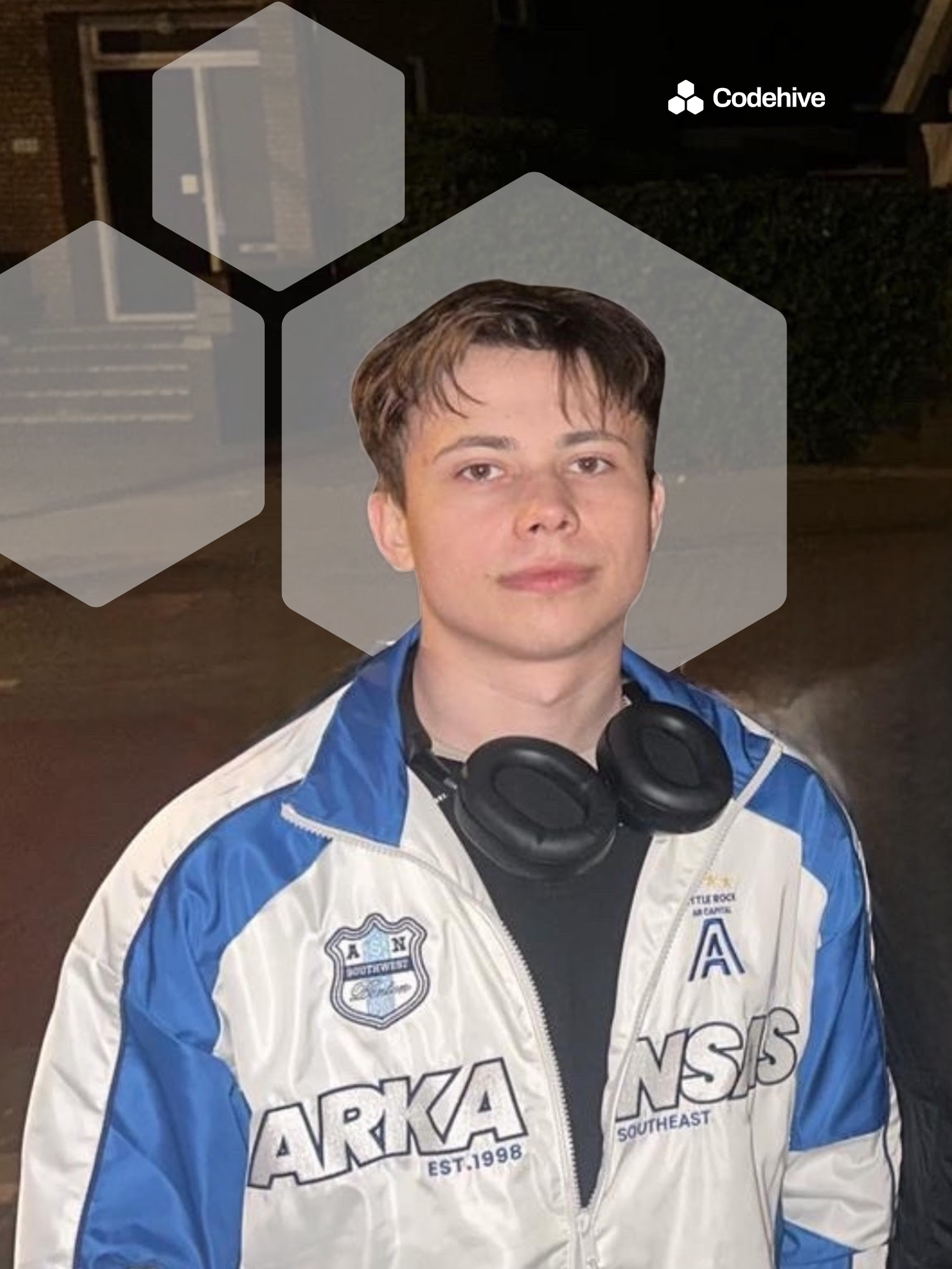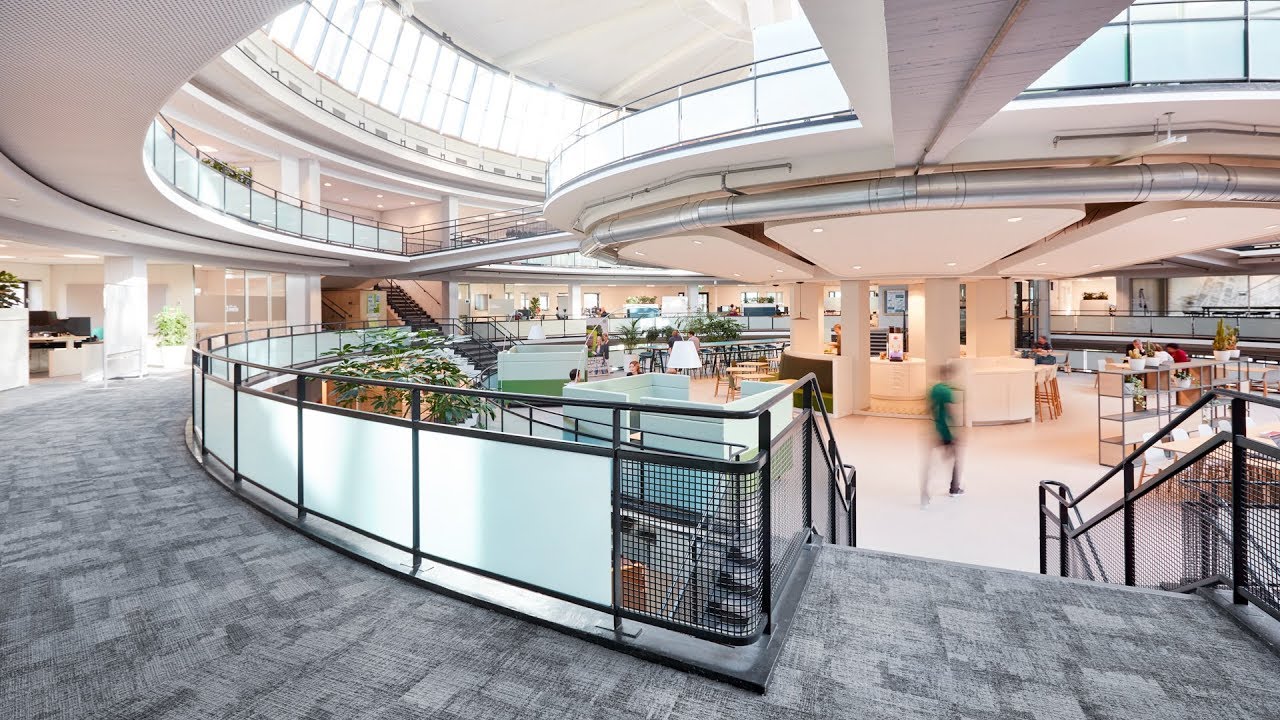Building, learning, and finding balance: Ion at Competence Factory
“I love creating things from scratch,” he says. “Programming already felt natural to me in high school.” Ion (23) is from Moldova and studies Technical Computer Science at the University of Twente in Enschede besides his developer work. He shares a house with five friends, plays football with them on campus, and runs a small startup together with two friends.
His move abroad was intentional: he wanted a practical, applied computer science program and found exactly that in Twente. The first year without his family took some adjustment, but now,in his fourth year, he feels at home. “I go back every holiday and also for family birthdays or other special moments.”
From a CodeHive opportunity to a long-term project
Ion found his role at Competence Factory through the CodeHive WhatsApp group. One evening at home, a housemate received a job notification.
“I uploaded my CV and Thomas reached out. It was a perfect match and everything went really smoothly after that.” Since then, Ion has been working at Competence Factory in Utrecht as a Full Stack Developer. The project is large and long-term, plenty of challenges to learn from.
What he is working on? “We’re building a new CRM for internal operations. Meanwhile, the old FileMaker system is still running, so we synchronize both systems to avoid losing or corrupting data.” Alongside that migration, he develops new features such as trainee administration. He’s currently integrating an external campaign platform, ensuring that tools from the old environment continue to work in the new one.
Rhythm, energy, and focus
Ion works hybrid, usually spending two days per week in the office, and focuses on studying during weekends. His schedule is tight: “Anything involving math I do in the morning. I prefer coding in the evening. Working out is great if I can fit it in, but work and study come first.”
Contrary to what he expected, his office days actually give him energy. “Everyone has clear tasks and stays focused. It’s contagious, it keeps me from postponing my work.” Within the data team, he works closely with another CodeHive student. “I like being part of a small team: communication is faster and your responsibility is bigger.”
Is combining both study and work doable? “Definitely. The first month is the hardest: you have to adjust your schedule. After that, it becomes easy.”
His advice for other developers:
- Wake up early and do your most important work in the first half of the day.
- Use weekends if needed, but keep time to recharge.
- Deliver on time and stay consistent, discipline matters.
From personal project to professional standards
Transitioning into a professional environment required a shift in mindset.
“At my startup with two friends, we did everything our own way. No reporting, no pressure. Here, everything needs to be done properly, with team standards and code reviews. In the beginning, I often wondered: Is this good enough? Did I do it right?”
That learning curve has paid off. He now receives clear feedback and when the disagrees, there is room for discussion. “In just four months I’ve improved a lot, especially because the project is complex.” A great example is the reliable data synchronization between the old and new systems: “Making sure no data is lost and that both platforms run smoothly is both technically and organizationally challenging. It’s the kind of real-world problem you never truly encounter at university.”
Why this path?
Ion deliberately chose a hands-on study: “It’s the mix of math, programming, and building. I want to create things that people actually use, from scratch or by improving existing systems.”
The study in Twente fits that vision perfectly, but working life adds another dimension. “Some of the things I’d taught myself at my startup weren’t ideal in a professional context. Now I’m learning how to do them the right way.”
While Ion wants to keep developing technically, he’s also curious about the business side. “Going from an idea to an implementation is relatively easy these days. What really makes the difference is how you position and sell it: how you pitch a product and find real use cases.”
He keeps his options open for the future: maybe he will work remotely, but the opportunities in the Netherlands are also really strong. He will go wherever the best possibilities are.
In conclusion
Where Ion once thought corporate life would be boring and full of paperwork, he now knows it’s quite the opposite. The team culture is strong, and the project is challenging yet meaningful.
Because of that, he genuinely enjoys the long days building products as if they were his own. That combination of personal responsibility, technical depth, and good mentorship makes this the perfect next step for him: a place where he learns something new every week . Today refining data migration, tomorrow dreaming about how to bring the finished product to market.





